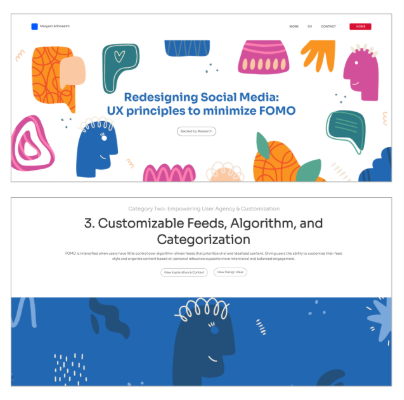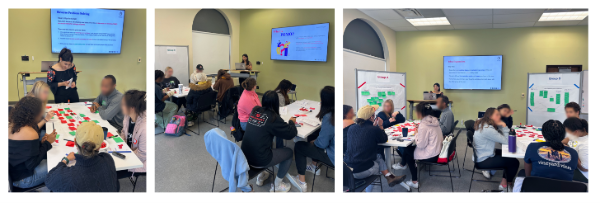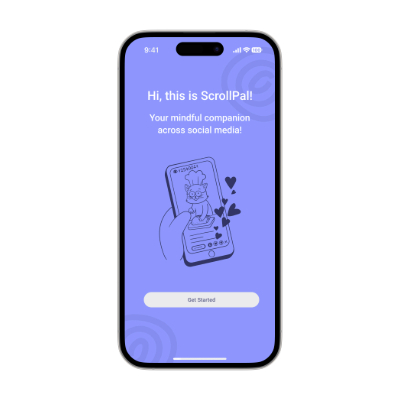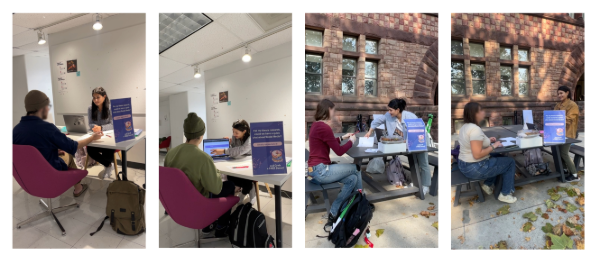Exploratory Design Research on Social Media User Experiences Among College Students: The Role of Design in Mitigating Fear of Missing Out (FoMO)
Maryam Alihoseini
MFA Design Research and Development, 2025
Project Description:
Social media plays a central role in how people connect, communicate, and experience the world. While it offers many benefits, such as access to information and community building, it also introduces challenges that affect emotional well-being. One of the most prominent issues is Fear of Missing Out (FOMO), a common emotional response to the constant visibility of others’ lives and achievements online. It reflects the fear of missing valuable experiences or opportunities that could enhance one’s life. FOMO has been linked to anxiety, social comparison, and compulsive engagement, particularly among college students who are highly active on social media and navigating major life transitions.
This thesis investigates how User Experience (UX) design can address the emotional impacts of FOMO in social media use. While previous research has primarily focused on the psychological and behavioral dimensions of FOMO, there is a lack of studies exploring design-based solutions. This study bridges that gap by applying a design research lens to understand users’ experiences and propose UX interventions aimed at minimizing FOMO.
The research follows a five-stage process: pilot tests, user interviews, co-design workshops, data analysis, and the development of final deliverables. Pilot testing helped refine the methodology, followed by in-depth interviews with 23 college students to explore their social media habits and FOMO experiences. Two co-design workshops with 21 participants generated collaborative ideas and deeper insights. Data from these activities were analyzed using affinity mapping, transcript review, and grounded theory to identify patterns of FOMO and opportunities for design intervention.
Findings from this process led to the creation of ten UX design principles, organized into four thematic categories: Encouraging Authenticity, Empowering User Agency, Supporting Mindful Use, and Enabling Inclusive Experiences. These principles were mapped onto a visual framework using two axes, one comparing User-Controlled and Platform-Controlled features, and the other comparing Direct and Indirect FOMO, to clarify their function and impact.
To translate these insights into practice, a plugin concept named ScrollPal was developed. This third-party plugin offers personalized prompts and emotional support while users scroll, encouraging reflection without disrupting their experience. Inspired by nudge theory, ScrollPal empowers users to manage their social media use in more intentional and emotionally aware ways.
This thesis highlights how design research can move beyond identifying the harms of FOMO and instead contribute to practical, human-centered strategies for improving digital experiences. It shows that UX design has the potential to support emotional well-being by reshaping the way users interact with social media.
Committee Members: Elizabeth Sanders (Advisor), Shadrick Addy, Joseph Bayer
Keywords: fear of missing out; FOMO; social media design; user experience design; user experience research; college students; digital well-being; design interventions; human-centered design; co-design; participatory design; plugin design; UX principles; social media behavior; behavioral design; technology and mental health; qualitative research




